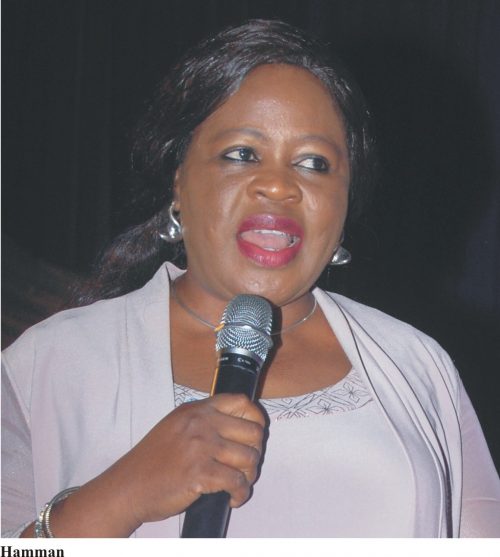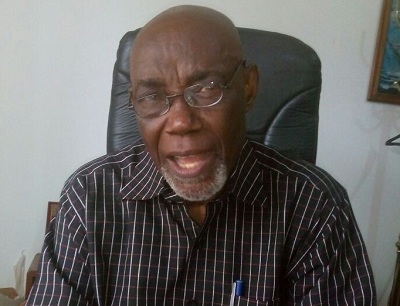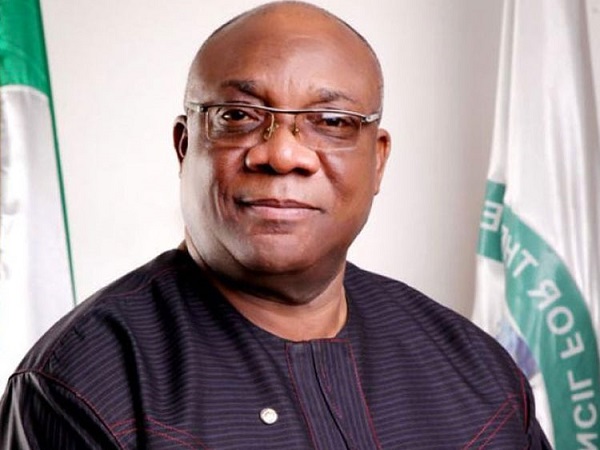Shipping Companies, Terminal Operators Still Use Obsolete Procedures Despite Innovation- Uche

Chief Increase Uche is the Acting President of the National Association of Government Approved Freight Forwarders (NAGAFF). In this exclusive interview with MMS Plus, he reveals the major impediments to Customs brokerage in Nigeria, speaks about the freight forwarders threat to withdraw their services from the ports, highlights some shortcomings of the port concession and recounts his experience in NAGAFF.
Excerpts:
The Nigeria Customs Service (NCS) recently introduced new procedures for clearing goods as the ports, how significant is this to enhancing the ease of doing business from a freight forwarders perspective?
As freight forwarding practitioners, we always believe that every change is for the best and we are always ready to align with new procedures introduced by government agencies on cargo clearance. The Customs introduced a new process with provision of examination offices at all commands to speed-up cargo inspection processes. Although we believe them, the fact is that most of these lofty initiatives are only applicable theoretically.
Nevertheless, with the assurances by the Comptroller-General of Customs, Col. Hameed Ali (Rtd) to carry along freight forwarders and agents in his administration, it would be unfair to pre-empt the new procedures but wait for it to kick-off and then contribute in amending the system to ensure it functions optimally.
There was also a reduction in the documentation processes for importation and exportation. How would you appraise this development and what other aspects of customs procedures need to be rejigged?
The efforts to streamline import documentation from 14 to 8 and export documentation reduced from 10 to 7, is quite commendable but one critical area of customs brokerage that needs to be reviewed is the aspect of granting licenses. If Customs want to professionalize the clearing process, they need to look at the CEMA law which provides for licensing of corporate bodies, individuals and firms. The practice by the Nigeria Customs Service to license only corporate bodies is a deviation from global best practices. The licensing of individuals ought to be recognized because it is the individual that handles the corporate body.
Similarly, the scenario where customs licenses are used to open ‘authority’ at shipping companies and terminals has become a problem. The law doesn’t recognize this and the advent of the Council of the Regulation of Freight Forwarders in Nigeria (CRFFN) ought to put an end to the old order. The old order seems to favor shipping companies and terminal operators.
For instance, when someone wants to release cargo and exchange Bill Of Lading (BOL), what the releasing officer at the shipping company is required to do is to confirm that the person has paid his or her Customs duty online and endorse the original BOL of the consignee or importer. There is no need for further verification because whoever paid duty is first recognized as an operator. What is going on in the ports today is a combination of the import guidelines and procedures of 2003 when we have departed from ASYCUDA 2.3 and ASYCUDA 2.7. Those requirements in 2.3 and 2.7 are still prevalent when we are operating with ASYCUDA 3.0.
It is unfortunate that after a freight forwarder has done all that is required of him electronically; he still has to submit the hardcopies of the documents. This causes serious delay and negates the ease of doing business. Unless these issues are resolved in the licensing regulation of Customs, ease of doing business wouldn’t be achieved in terms of customs brokerage. These are some of the issues in the documents we gave to the Comptroller General when he visited NAGAFF and we also submitted an executive brief to Shippers’ Council during the recent meeting called by the Federal Ministry of Transportation.
The first quarter of 2017 is gone, and the visit of the Comptroller General to freight forwarding associations was the highpoint. Going forward what short and long term agenda would you set for the maritime sector?
One of the promises made by Col. Hameed Ali was to ensure freight forwarders and agents are carried along especially in the area of training. The recent reshuffling of Customs officers was equally proposed by NAGAFF and the Comptroller General has already swiftly made some postings, promotions and restructuring which would break the stronghold of some Customs officers who have held sway in one position for several years. Corruption increases when officers stay in one position for too long.
The recent postings and promotions by the Customs have been commended and seen to be based on merit but the absence of a Customs board has stemmed a public debate. Why hasn’t the Customs board been established?
The state of the Customs Service at the moment is really problematic. First, one begins to wonder what motivated the president to bring an outsider to man the Customs Service. Although, the President may have his genuine decisions but it has led to the circumstances we have in the Customs today. The absence of the Customs board means the Minister should act but we see Col. Hameed Ali acting as a military officer working directly with Presidential briefs. However, we are confident that the Customs would give us the best as freight forwarders.
What short and long term targets or achievements would you set for the freight forwarding sub-sector of the maritime industry?
The federal government should review the policy of setting revenue targets for the Customs so that Custom officers don’t find themselves engaging in various schemes to ensure short-term revenue generation and impede trade facilitation and revenue generation in the long-term. If genuine trade is facilitated, the much anticipated revenue would still be achieved. However, the number one focus shouldn’t be revenue generation. The Customs officers have also been setting personal selfish revenue target for themselves under the mask of revenue generation which adds to the level of corruption. Some of the corrupt tendencies of Customs officers have dissipated since the emergence of Col. Ali as Comptroller General of Customs, however, the economic recession has crippled activities at the ports.
As freight forwarders, our plea is for Customs to enhance their service delivery and we believe the recent transfer and promotions would make the officers more serious with their jobs. Col Ali had started earlier that these are part of his reforms and we hope that this adds value to their operations. Remember, Ali’s mandate was to ‘reform’, ‘restructure’ and ‘enhance revenue’. We believe that he is on the right track in terms of the reforms and restructuring and an increase in revenue should be expected before the end of the year.
How would you describe your experience in NAGAFF over the years and as Acting president what are your goals and aspirations for NAGAFF?
It is only a substantive president that should have an agenda to pursue. I am still working in the capacity of ‘acting president’ so I have not unveiled any target. However, from my experience I know that there is no gap in leadership. I know where NAGAFF started even though I joined the association two years after it started. I can tell the history of NAGAFF because I have always been an active player. NAGAFF was initially set up to do a lot in terms of training; we also had an academy and anti-corrupt arm.
I started my sojourn at the NAGAFF Tin Can chapter where I served three times as the Vice Chairman and I later became the National Trade Facilitation Committee Chairman and also headed the Anti-corruption Vanguard. I was attached to that committee. We were trained by the Independent Corrupt Practices and the related offence Commission (ICPC) in 2006. ICPC gave us the authority to demand for documents from the Customs but along the line the whole idea was scuttled.
My sojourn in NAGAFF has enhanced my practice as a freight forwarder, because I joined via the NAGAFF Academy which later folded in 2003 as a result of funding. This academy was crucial to ensuring freight forwarders fully understood the profession. We believe that when CRFFN stabilizes the place of training would be re-emphasized.
Following the port concession, freight forwarders are yet to see a user-friendly port which should thrive on automation as we were promised. Freight forwarders have been unable to maximize the benefits of this concession.
What is the state of the proposed strike action by members of the National Association of Government Approved Freight Forwarders (NAGAFF) and the Association of Nigerian Licensed Customs Agents (ANLCA )?
It wasn’t a mere threat; we meant every word in that letter to the President. The benefits of the port concession are yet to materialize in terms of having a port that is user-friendly, automated and free of bureaucratic bottlenecks. ANLCA and NAGAFF met with the Executives of Shippers’ Council and the government has promised to address these issues starting with a crucial conference to be held soon.
We need a change because this industry cannot continue in this direction. We are aware that shipping companies are planning to increase their charges again. We also intend to discuss with the Nigerian Ports Authority (NPA) to know if the four different charges they collect from the shipping companies are part of the problems because these charges are having a multiplier effect on cargo clearance and what shipping charges should be. The government collects these charges and they place them on the cargo with Nigerian merchants left to bear the brunt. This means the nation hasn’t achieved anything.











